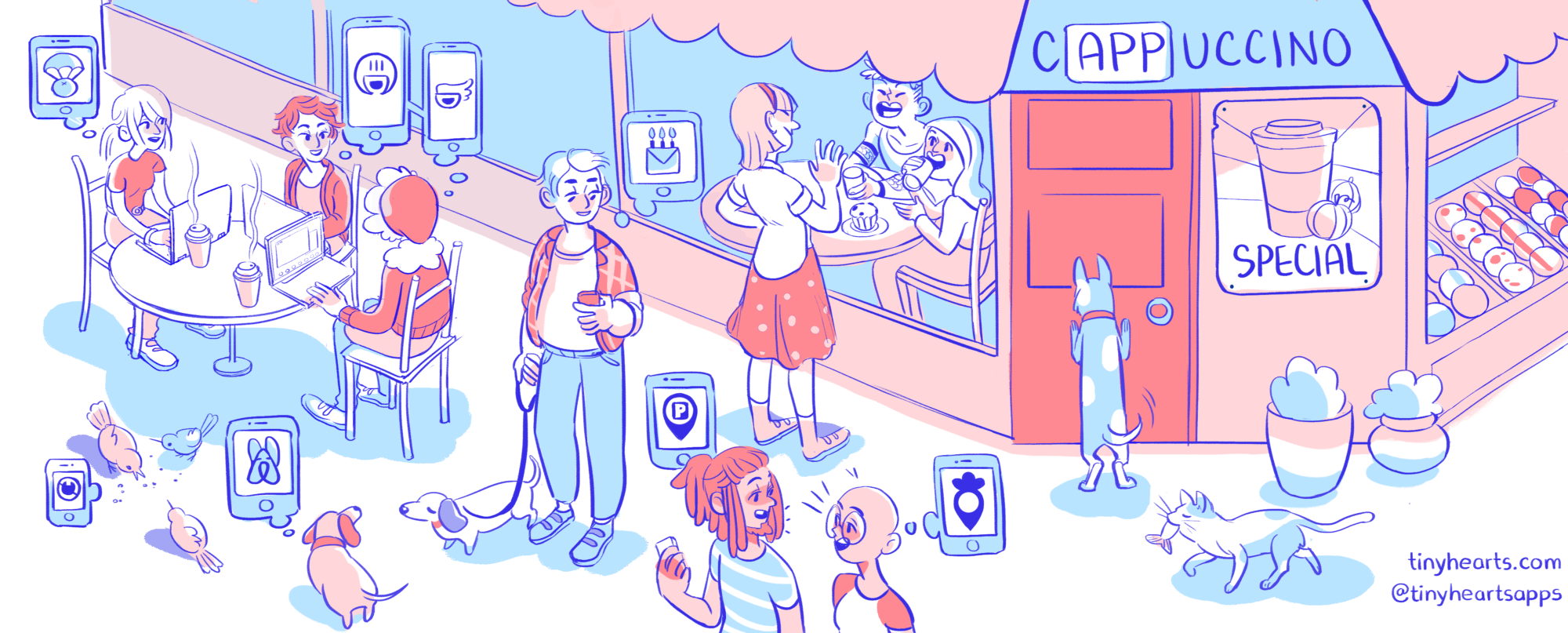So you have an app idea, eh

Originally written by Robleh Jama for Medium. Robleh currently builds products at @Shopify. He founded @tinyheartsapps — an award-winning mobile product studio. Read the article in its entirety here.
1. Why do you want to make an app and what’s your goal?
Would you prefer to explore and better understand mobile, or are you looking to make a business out of this idea and earn revenue? Or are you trying to grow your user base and are marketing metrics most important to you?
Looking to learn?
Revenue?
Leads (or some type of funnel)?
Users? Reach?
Engagement?
Once you figure out your goal…
2. What problems are you trying to solve, and for whom?
How is it being solved currently?
Who is your target market?
A grand vision is great, but how can you start small?
3a. Market research: What market/category are you competing in?
What’s the potential size of your market?
What are some viable businesses in this market? Who is #1 and #2 right now?
What trends or waves are relevant today, and in the near future?
What do you know that others don’t know?
Why you? What do you bring to the table? (This is related to your differentiator.)
3b. Competitive research: How is your solution different and better?
In order to differentiate and make your app unique, you have to know who your competition is.
Who is the competition?
What does the landscape of your app look like?
What do you bring to the table that’s different, how do you differentiate?
What’s your competitive advantage?
How will you 10x the competition?
If your idea has been done before, how are you going to remix it?
4. Validate your idea.
When you first explained Twitter to someone, they probably laughed and thought it was a stupid idea. Who would actually want to write in under 140 characters?!
We don’t claim to know the future, but the best way to test any type of idea is to build a low-investment version of it. Use design sprints to prototype an idea, get feedback, and iterate on it.
Think about your app like a scientist would. Stop being a dreamer, get your lab coat on, and start applying your idea to the real world. Think of the research question your app is answering, what your hypothesis is, and how that applies to your app. Write down notes based on your observations and optimize your efforts for learning.
Your app should start out, and continue, as a conversation. Don’t fall in love with your ideas, because they’re just assumptions. Validate it and make sure you keep iterating.

